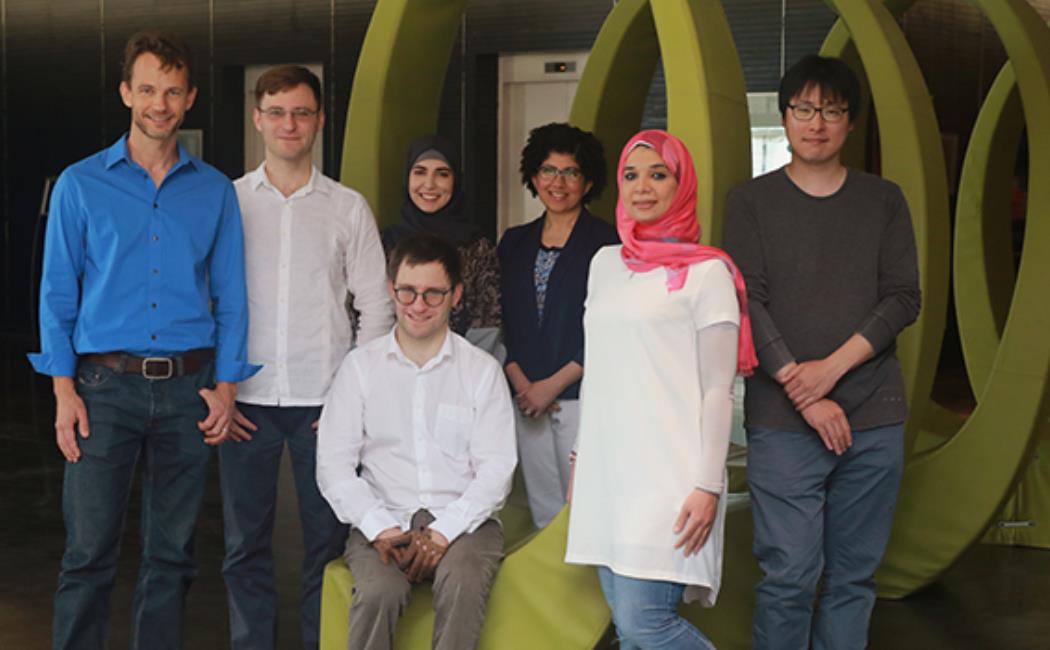
Global study links newly named syndrome with other disorders
16 May, 2019
A new kind of congenital disorder caused by a group of mutations in a gene previously linked only to a rare progressive brain disease has been discovered by an international team co-led by Saudi investigators.
The disorder—congenital hypotonia, epilepsy, developmental delay, digit abnormalities, or CHEDDA—is characterized by intellectual disability, reduced muscle tone and facial abnormalities. It results from defects in ATN1, a gene also implicated in a neurodegenerative condition called dentatorubral-pallidoluysian atrophy (DRPLA). However, the disease-causing mutations responsible for each illness occur in different regions of the gene, and the clinical symptoms of DRPLA and CHEDDA are observably distinct.
Click here to read the full story
Image: The KAUST research team (l-r): Stefan Arold, Łukasz Jaremko, Mariusz Jaremko, Heba Ahmed, Jasmine Merzaban, Fajr Aleisa and Seungbeom Hong.
Reproduced with permission from reference 1 © 2019 journal